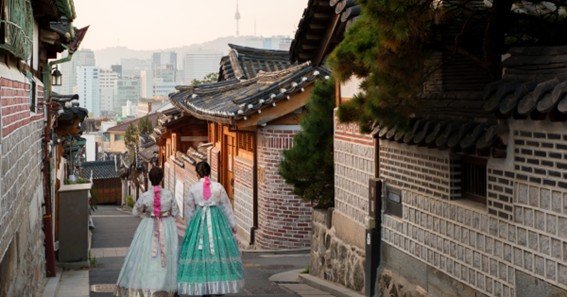South Korea, a nation where ancient traditions harmoniously coexist with cutting-edge modernity, offers a plethora of compelling reasons to visit. From its rich cultural heritage and delectable cuisine to breathtaking natural landscapes and technological advancements, South Korea promises an unforgettable experience for every traveler.
Cultural Heritage and Historical Sites
South Korea boasts a deep sense of tradition and a rich history that is evident in its numerous historical sites. Visitors can explore ancient palaces, temples, and cultural villages that showcase the country’s storied past. For instance, Seoul is home to five royal palaces, each unique in its architecture and historical significance. These sites offer a glimpse into Korea’s dynastic eras and are a testament to its enduring cultural legacy.
Culinary Delights
Korean cuisine is renowned for its variety and flavor, offering a gastronomic adventure for food enthusiasts. From savory dishes like kimchi and bulgogi to sweet treats such as hotteok, the country’s food scene is both diverse and delicious. Street markets and traditional restaurants provide ample opportunities to savor authentic Korean flavors.
Natural Beauty and Outdoor Activities
Approximately 70% of South Korea’s terrain is mountainous, making it a paradise for hiking enthusiasts. The country boasts 22 national parks, offering trails that range from gentle riverside strolls to challenging mountain hikes. Seoraksan National Park, for example, is renowned for its stunning landscapes and diverse flora and fauna.
Modern Innovations and Pop Culture
Beyond its historical and natural attractions, South Korea is a global leader in technology and pop culture. The phenomenon known as the “Korean Wave” (Hallyu) has popularized K-pop music, Korean dramas, and fashion worldwide. Cities like Seoul are hubs of innovation, offering visitors a glimpse into the future with their advanced infrastructure and vibrant cultural scenes.
FAQ
1. What is the best time to visit South Korea?
South Korea experiences four distinct seasons. Spring (April to June) and autumn (September to November) are particularly pleasant, offering mild temperatures and beautiful natural scenery.
2. Do I need a visa to travel to South Korea?
Visa requirements vary depending on your nationality. It’s advisable to check with the South Korean embassy or consulate in your country before planning your trip.
3. Is South Korea a safe destination for tourists?
Yes, South Korea is considered a safe country for travelers. However, as with any destination, it’s important to stay aware of your surroundings and follow local guidelines.
4. What are some must-try Korean dishes?
Some iconic Korean dishes include kimchi (fermented vegetables), bulgogi (marinated beef), bibimbap (mixed rice with vegetables), and tteokbokki (spicy rice cakes).
5. How can I experience traditional Korean culture?
Visiting historical sites such as Gyeongbokgung Palace, participating in tea ceremonies, and staying in a traditional hanok house are excellent ways to immerse yourself in Korean culture.
In conclusion, South Korea’s unique blend of history, culture, cuisine, and modernity makes it a captivating destination for travelers seeking diverse experiences.










